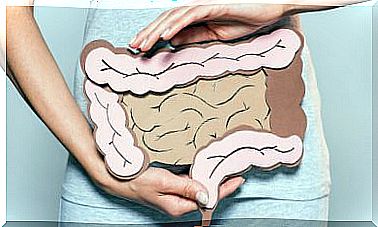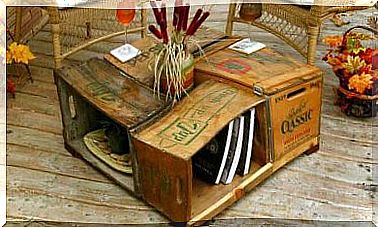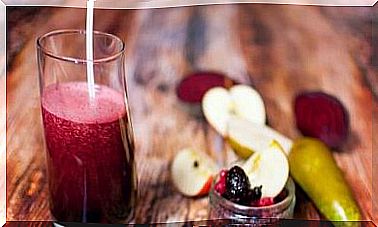8 Healthy Habits To Ease Heavy Digestions
Moderate portions is one of the best ways to end heavy digestions. Instead of having three heavy meals, we can take five slightly lighter meals.

To alleviate heavy digestions, it is important to know how to prevent them by practicing some very simple but really effective lifestyle habits.
Remember that during digestion all the nutrients from food are absorbed. Therefore, having a good digestion is very important to enjoy good health. When this process does not occur in the correct way for one reason or another, it is necessary to solve it as soon as possible to prevent severe stomach or intestinal disorders.
1. Chew your food well

One of the most effective ways to combat heavy digestion is to spend at least 20 to 30 minutes on each main meal; that is, it is necessary to take a schedule to make our meals without haste.
Likewise, eating in a calm environment is very favorable for a good digestion. On the other hand, although many tend to ignore it, eating too large pieces of food is one of the factors that most hinders digestion. Therefore, it is advisable to cut the food well and take it, little by little.
To prevent and alleviate heavy digestions, it is essential to eat slowly and chew each bite well ; This will also help reduce your risk of gas, bloating, and even heartburn.
2. Avoid overuse of seasonings
People who suffer from slow digestions on a regular basis should try to reduce or eliminate some condiments from their diet.
While some seasonings have health properties, the excessive use of salt, pepper, mustard, and spicy seasonings in meals can promote irritation of the lining of the stomach and also, the intestine, as well as reflux and inflammation of the abdomen.
3. Increase your fiber intake
Dietary fiber is a substance that helps maintain the health of the intestines, facilitates the elimination of waste and also prevents the excessive accumulation of cholesterol and sugar in the blood. We can find it in:
- Vegetables.
- Vegetable drinks.
- Whole grains.
- Raw vegetables and fruits.
- Seeds and nuts.
In turn, it promotes bowel movement to control inflammation and reduce episodes of constipation. However, its daily consumption should not be excessive because it can cause flatulence.
4. Moderate the portions
Eating in exaggerated amounts not only leads to noticeable weight gain but also increases episodes of dyspepsia.
Large portions are very irritating to the stomach as you must multiply your efforts to digest them. Consequently, pain, inflammation and gas accumulation appear, among other annoying symptoms.
To avoid and relieve heavy digestions, it is necessary to learn to eat in moderate quantities. The most advisable thing is to enjoy small portions in the 4 or 5 meals that we make a day.
5. Moderate alcohol consumption

Excessive alcohol consumption can be very harmful to stomach health. After all, alcohol is still a toxic substance that affects esophageal motility, promotes reflux and various disorders of the digestive system.
Therefore, it is best to enjoy the drink in moderation and, always, accompanied by a small amount of food, preferably low in calories.
Additionally, it must be remembered that smoking is also harmful to the body since nicotine stimulates the acid secretion of the gastric wall.
6. Reduce the consumption of fried foods
Fried foods and foods high in saturated fat are the number one enemies of people with a tendency to suffer from digestive problems.
The accumulation of lipids alters metabolic functions and interferes with the work of the intestines to carry out digestion. In addition, they often cause inflammation and irritation of the gastric mucosa, thus promoting dyspepsia.
7. Limit your coffee consumption

Although coffee is a drink with many benefits for the body, in cases of frequent slow digestion, it is best to limit its consumption.
Taking it in excessive amounts increases the secretion of acidic juices and, as a consequence, digestion slows down and can be accompanied by pain and a burning sensation in the pit of the stomach.
To alleviate heavy digestions, it is best not to drink coffee, but to enjoy an infusion of chamomile, pennyroyal, mint or dandelion.
8. Avoid naps after eating
Although it is recommended to remain calm after eating for good digestion, it is not recommended to take a nap after eating. Especially if the food has been copious.
Napping immediately after eating makes gastric emptying very difficult. In other words, lying down and sleeping facilitates the passage of acidic juices into the esophagus, thereby producing acid reflux and a feeling of heaviness.
Relieving heavy digestions is up to you
Both to prevent and to alleviate heavy digestion, it is necessary to take into account all these habits and, of course, try to comply with them.
Likewise, it is important to review the type of food we consume and be attentive to intolerances (if any) to avoid indigestion.









